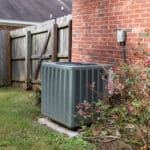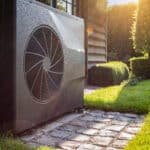
How Does Air Conditioning Help with Allergies?
Spring brings comfortable weather, beautiful flowers, and unfortunately, lots of pollen. Over 19 million American adults and 5 million children suffer from seasonal allergies according to the Asthma and Allergy Foundation of America. Besides loading up on tissues and allergy pills, you can also improve your allergies with the help of your air conditioning unit. Parker’s Heating and Air Conditioning wants to help you and your family breathe easier year-round, especially during allergy season. There are simple steps you can take to ensure that your HVAC system is maintaining your clean air quality.
Air Conditioning Filtration
Your air conditioning unit has an air filter that is designed to capture particles and allergens, so they are not allowed to circulate through your home or business. When your air conditioning filter is not functioning properly, particles and allergens can get into your lungs and cause irritation. This is especially problematic for children, elderly people, people with respiratory conditions, and allergy sufferers. An air filter should be changed at least every three months, and possibly even monthly, if you have allergy sufferers in your home or office. An old, dirty, or clogged air filter cannot capture particles properly, so your air quality will suffer. Also, a clogged air filter can cause your HVAC unit to work harder to function properly, which could lead to premature failure.
Air Conditioning Humidity
The humidity level in your air could impact your allergies. If the humidity is too low, your family could experience nasal irritation, dry skin, and rashes. When the humidity is too high, bacteria, mold, and dust mites will be more likely to grow, which will cause health problems. The ideal home or office humidity would be between 30-50%. Your air conditioning system can help ensure that your humidity levels stay balanced for optimal air quality and health. In particularly humid climates, a dehumidifier may be necessary to manage your moisture.
Air Conditioning Allergy Health Tips
- Change your Air Filters Regularly–We recommend writing a reminder on your calendar or setting a reminder. Changing an air filter will only take a minute and it will greatly improve your air quality.
- Schedule Annual Checkups–Your air conditioner needs to be in proper working order to ensure that it protects your comfort and air quality. We can check all the components of your system to ensure everything is doing its job properly.
- Keep your Indoor and Outdoor Units Clear–If you see dust building up around your vents or ducts, go ahead and clear it away before it can get circulated into your air. Also, make sure that your outdoor unit is clear of any debris.
- Run your Air Conditioner with the Windows Closed–If you use your air conditioner when your windows are open, you are welcoming more allergens and particulates into your home or office. Also, you are wasting your money and energy cooling the outdoors and overexerting your HVAC unit.
- Consider an Upgrade–If your unit is more than ten years old, you should consider a new unit. In the course of a decade, there have been many improvements in performance and efficiency within HVAC units. Your system may be costing you more money and energy than necessary, while not delivering the best air quality. There are also air purifiers that can be added to your existing unit to help further improve your air quality. If you are interested in learning more about air purification options, our team at Parker’s Heating and Air Conditioning can help you find the best fit for your needs.
Start improving your allergies inside your home or office today. Schedule a consultation with Parker’s Heating and Air Conditioning!



